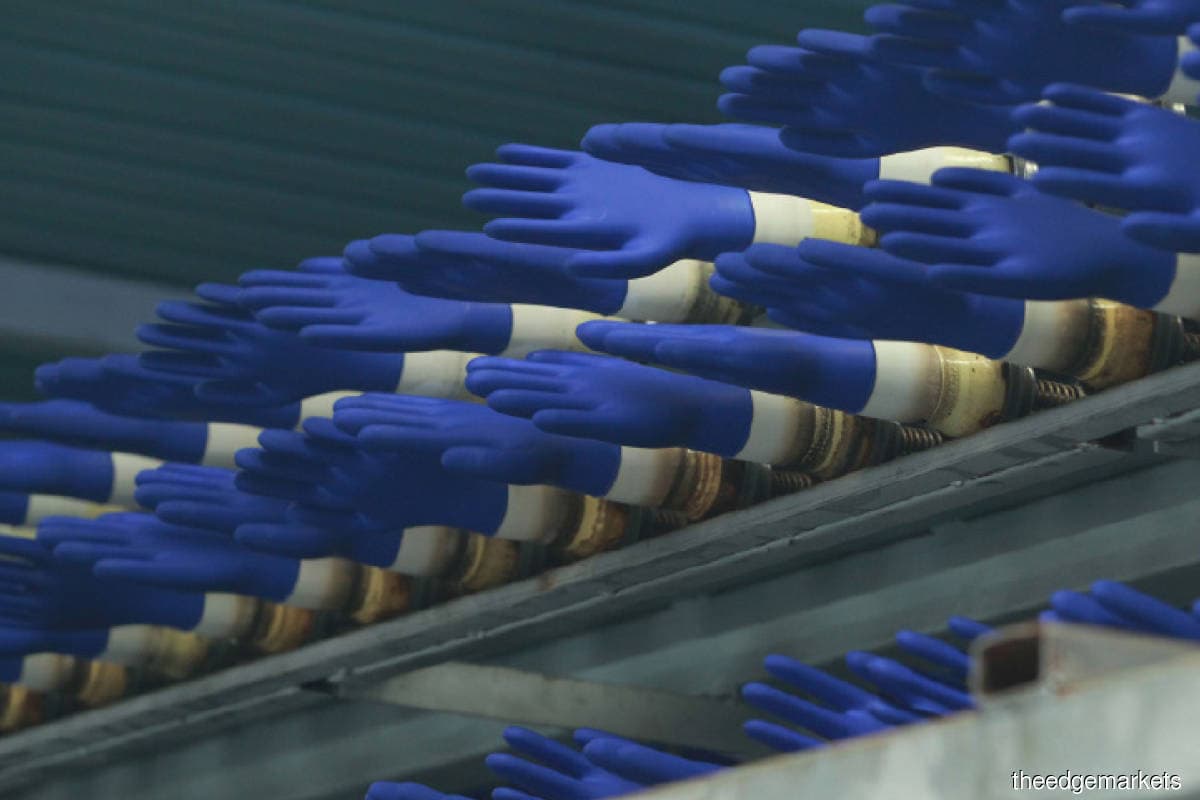
This article first appeared in The Edge Malaysia Weekly on January 25, 2021 - January 31, 2021
AT the height of the glove stocks rally late last year, two local glove companies expressed interest in an initial public offering.
But as valuations for glove stocks have tapered off, now that many countries have started to vaccinate their citizens against the Covid-19 virus, have the duo missed the boat?
Harps Holdings Sdn Bhd and Smart Glove Corp were reportedly seeking to raise about RM2 billion and RM1 billion respectively in an IPO. However, they have yet to file their prospectus exposure draft with the Securities Commission Malaysia.
Analysts generally view a listing as a good platform for private companies to raise funds for their expansion plans.
“If these companies want to continue to grow, they need a certain amount of capital expenditure. They also need a stronger corporate profile. On that front, it makes sense for the owner to go for a listing,” Areca Capital Sdn Bhd CEO Danny Wong tells The Edge.
However, valuations depend on the profit forecast, outlook and investor sentiment, which — unfortunately for Harps and Smart Glove — have eased considerably over the past month.
“Valuation-wise, the current market gives them a hard time. They need to show the figures. At this moment, investor sentiment is affected by the pandemic and vaccine development. People are sceptical about whether the super profits can continue.
“Nonetheless, excluding the super average selling prices (ASPs) and production, I think they can get 10 to 12 times price-earnings ratio (PER). It is more acceptable in the current market. You cannot ask for sky-high valuation,” Wong says.
That kind of PER would be more in line with those of glove makers currently except for Hartalega Holdings Bhd, to whom investors appear happy to accord a much higher ratio.
Among the top four glove stocks, Hartalega is trading at the highest 12-month trailing PER of 41.1 times, significantly higher than that of Top Glove Corp Bhd (12.2 times), Supermax Corp Bhd (13 times) and Kossan Rubber Industries Bhd (17.2 times).
Glove counters have seen a lot less activity since early this month, with only Supermax registering a positive return of 1.7% among the Big Four. Kossan is down 10.9%, followed by Hartalega (-2.8%) and Top Glove (-1.6%).
In the light of the successful rollout of Covid-19 vaccines, AmInvestment Bank Research has cut its target PER by 10% across the board to take into account the risk of a down cycle in the sector.
“While we believe glove makers’ fundamentals remain steady for the next few years, they offer limited upside at their current share prices. Thus, we advise investors to accumulate at lower levels,” it says in a Jan 13 note.
In maintaining a neutral view on the glove sector, the research house noted that valuations for companies under its coverage (Top Glove, Kossan and Hartalega) are already fully reflected in their earnings outlook. “We reckon the ASPs will begin to ease after 1H2021, following the strong increase over the past nine months, and are already priced in,” it says.
Still, Areca’s Wong believes 2021 will be a good year for glove makers. “Glove makers are getting pent-up orders and their ASPs will not come down. They can still make super profits this year,” he says.
Valuations marred by oversupply risk
Given the current market volatility, Inter-Pacific Securities head of research Victor Wan believes the two companies’ listing plans may not materialise.
“If they command a much lower premium, then it will be unattractive for them to list. There is also a risk of oversupply, and that could depress the valuation more.
“I suspect they may hold back the listing plans. Maybe they will think about it again when market conditions improve.”
At the time of writing, Smart Glove had not responded to queries over its listing plan, while attempts to reach Harps Holdings were unsuccessful.
Although the need for gloves will continue to be robust for the next half year, owing to a resurgence of infections globally, Wan says glove stocks are unlikely to see a strong rebound, but instead are more sought after in bargain-hunting activities.
When the glove manufacturing sector becomes saturated as scores of companies, lured by supra-normal profits, jump on the bandwagon, he believes talk of mergers and acquisitions (M&A) will gradually emerge.
“However, as most of these facilities have not taken off, we don’t know whether their glove production plans will materialise, judging by the [lower] valuation of glove makers at the moment,” says Wan.
Separately, on the planned overseas listings of Top Glove and Supermax, Areca’s Wong believes they would allow for an arbitrage function, especially when there is too much selling on one side.
For Wan, the key is still the premium accorded. “Six months ago, the stock prices of gloves gained because there was too much money chasing too few assets. Moving forward, it will be a recovery play. Whether there is sufficient appetite for healthcare stocks remains to be seen,” he says.
JF Apex Securities head Lee Chung Cheng points out that, compared with technology firms and start-ups, manufacturing listings in Hong Kong may be less appealing.
At its recent annual general meeting, Top Glove reiterated plans to float its shares on the Hong Kong Stock Exchange by the middle of the year.
Supermax said its planned dual listing on the Singapore Exchange would expand and diversify its shareholder base.
As for Mah Sing Group Bhd, the property developer indicated the possibility of listing its manufacturing division in Hong Kong, following its diversification into glove production.
Save by subscribing to us for your print and/or digital copy.
P/S: The Edge is also available on Apple's AppStore and Androids' Google Play.
